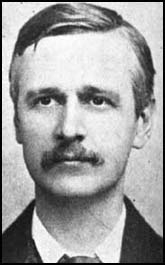On this date in 1858, political scientist, public official and educator Graham Wallas, the son of a puritanical clergyman, was born in Sunderland, England. He studied at Corpus Christi College at Oxford where he abandoned religion in favor of rationalism. To avoid participating in communion, he resigned in 1885 from his teaching post at Highgate School in London, where he was president of the Rationalist Press Association. In 1886, Wallas joined the Fabian Society, and befriended George Bernard Shaw, Sidney and Beatrice Webb, and co-founded the London School of Economics with them.
He was an outspoken critic of the misuse of Darwin’s work by proponents of the then-popular “social Darwinism.” He also believed very strongly in representative government and, in the face of great opposition, said the solution was not to do away with representative government but to increase participation by citizens. Wallas resigned from the Fabians in 1904 over political disagreements.
He joined the faculty of the London School of Economics in 1895 and taught there until his retirement in 1923. He served on the London County Council from 1904 to 1907, chaired the school of management committee of the London School Board and in 1914 became a professor of political science at the University of London.
Among Wallas’s many publications are Property Under Socialism (1889), Human Nature in Politics (1908) — a pioneering work on applying psychology to political analysis — The Great Society (1914) and The Art of Thought (1926). Wallas wrote in Human Nature in Politics: “Plato … proposed that the loyalty of the subject-classes in his Republic should be secured once for all by religious faith. His rulers were to establish and teach a religion in which they need not believe. They were to tell their people ‘one magnificent lie’; a remedy which in its ultimate effect on the character of their rule might have been worse than the disease which it was intended to cure.” (D. 1932)


